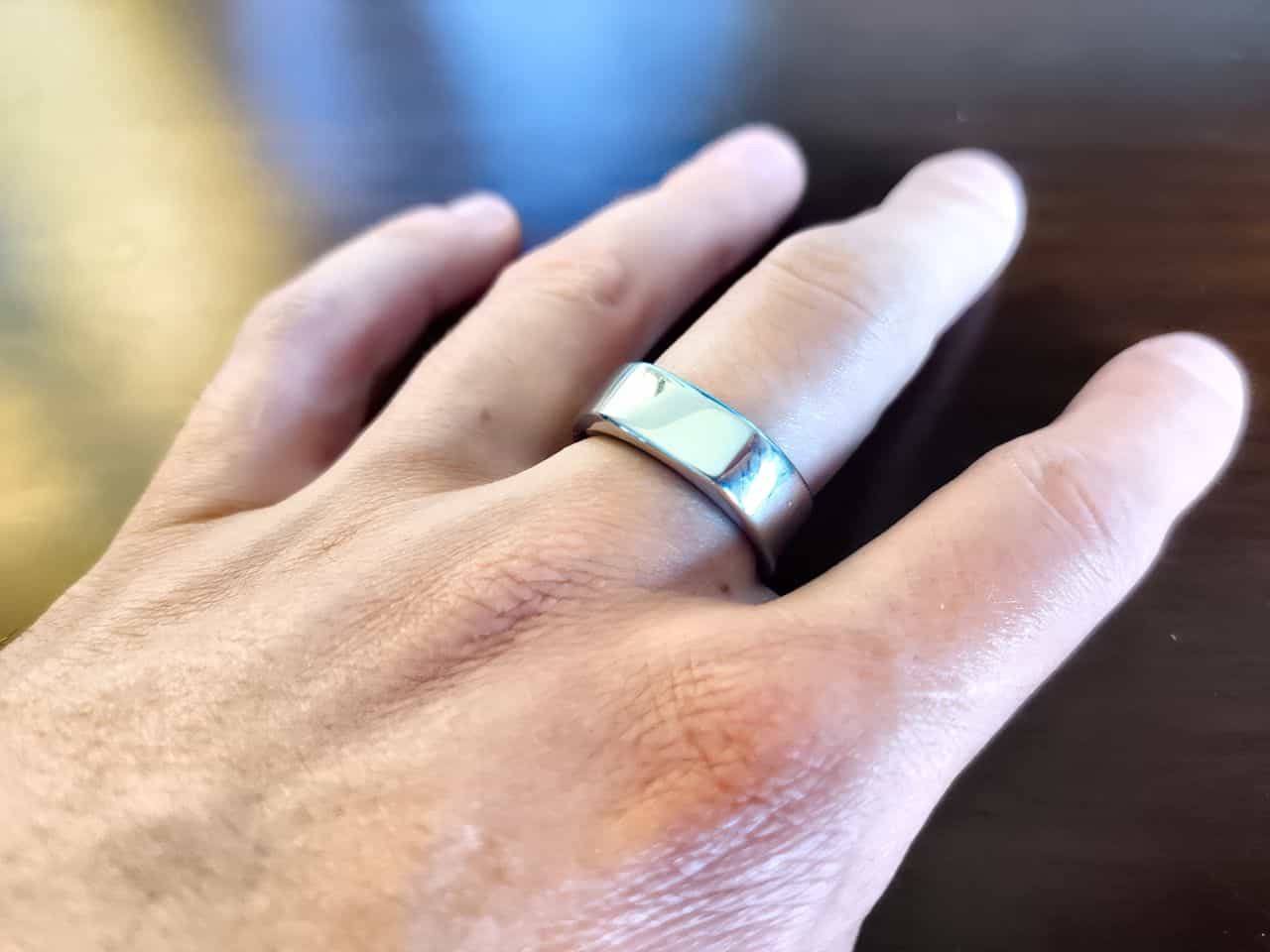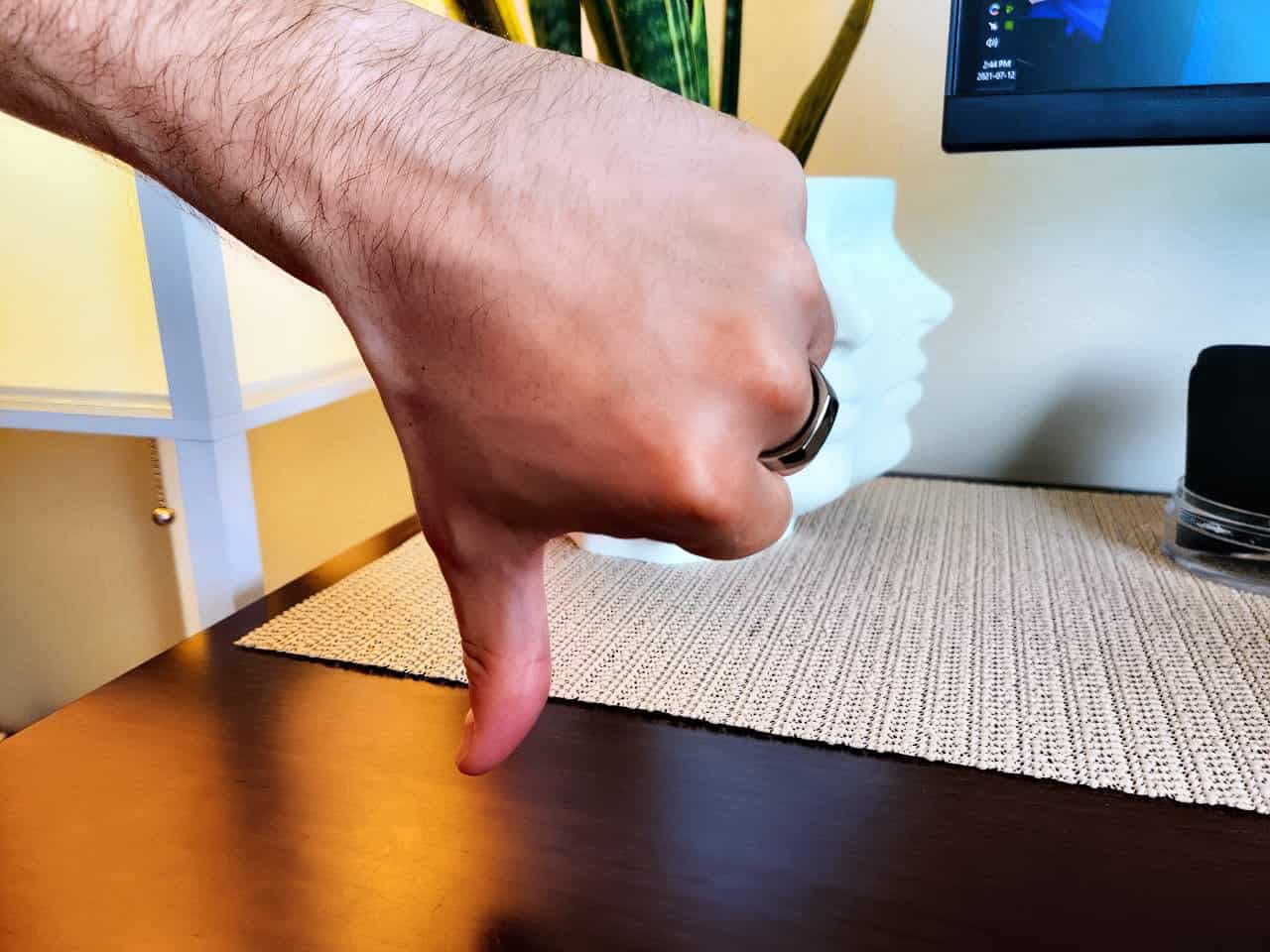The Oura Ring is a new type of smart tracker that promises to track your sleep and physical activity. It comes in a very compact ring form, and has frequently been praised by so-called lifestyle gurus like Tim Ferriss and Peter Attia. It looks great, sounds fantastic on paper, and is a complete piece of junk in my not-so-humble opinion.
Harsh words, yeah? My mother always told me to not say anything if I don’t have anything nice to say, but after having used the Oura every night for the past 3 months, I don’t want to see other people waste their money on such an expensive device when there are other options that are far less expensive and have a lot more functionality.
Before we really dive into this, I’m going to talk ever-so-briefly about what the Oura Ring is supposed to be, and also point out a misconception of mine that really didn’t help me love this thing.
What is the Oura Ring for exactly?
As I mentioned, the Oura Ring is a compact health tracker in the form of a ring. Most health trackers come in a wrist watch format, like the Apple Watch, the various Fitbits and Garmins, etc. Tons and tons of these things.

But Oura really stood out for me because it’s so tiny and discrete.
So here are the basic features, on the off-chance you’ve never heard of Oura and have absolutely no idea what I’m talking about here.
Here’s what Oura measures during the day:
- Activity Levels
- Calories
- Steps
- Inactive Times
- Naps
Here’s what it measures while you’re sleeping:
- Resting Heart Rate
- Heart Rate Variability (HRV)
- Respiratory Rate
- Body Temperature
- Light, Deep and REM Sleep
- Nighttime Movement
- Sleep Timing and Quality
And here’s where I screwed up: see how short the list is for day-time measurements? Yeah.
As a daily fitness tracker, it’s basically useless. I didn’t read the fine print, and foolishly expected it would track everything at all times. That’s on me!
So with the basic features in mind…
Are you ready for a bit of a rant? Let’s go.
I admit it, I was a sucker.
I’ve been a big fan of the lifestyle design folks for many years now, especially Tim Ferriss. His book – the 4 Hour Workweek – actually inspired me to leave a lousy, abusive job and work on this here website full time. I don’t regret that decision for a minute.
However, though I find people like Tim Ferris, Kevin Rose, Peter Attia (and many more) inspiring, their goals aren’t always aligned with my own. They often make money by promoting people’s products, and though I don’t suspect malicious intent, well… money often has a way of softening our views toward mediocre products. I’m not ashamed to say that I’m guilty of this myself, which is the main reason I won’t accept review samples of products that I know deep down are going to be trash.
So what’s the problem?
In short, I broke my first and most important rule when making a purchasing decision:
Research the heck out of something before you spend many hundreds of dollars on it.
These guys had been praising the Oura Ring for years, and I purchased without doing much research at all. Foolish (and expensive) mistake, and I’ll do my best not to repeat it.
Why do I dislike the Oura Ring so much?
If you’ve stumbled onto this quasi-review, you too have probably been debating buying one of these very expensive health tracking devices. It’s a big decision, not something to be taken lightly like I did.
So why do I dislike this thing so much? Here are my thoughts, in order of pain/disappointment:
- Oura markets their ring as being excellent for sleep tracking, but it’s really not. It’s actually one of the least accurate sleep trackers on the market. A device that costs 1/4th as much has more accurate tracking of the various sleep phases (REM, Deep, Light, etc) + sleep and wake times.
- It’s virtually useless as a daily fitness tracker. Though they don’t explicitly market it as one, it begs the question, what’s the point? If it’s only average as a sleep tracker, why not buy an inexpensive Fitbit that has much more accurate sleep tracking and functions great as a daily fitness tracker?
- Every night, it tells me to go to bed at 8:00. You can’t disable this or adjust your desired bed time. This is a common complaint, and they have absolutely no interest in changing this, despite years of complaints on Reddit and various other online forums. I assure you, exactly 0 adults go to bed each night at 8:00.
- The Android app is bare-bones, not especially actionable, and doesn’t allow any exporting of data. For such an expensive device, I would expect a lot more love being put into the software side of things. The UI is clunky and unintuitive.
The problem isn’t just that it’s not very accurate as a sleep tracker. Inaccuracy is generally OK, as long as it’s consistent. The trouble is that it really doesn’t do much of anything well and it’s far more expensive than the competition.
Why would you buy something that’s completely average (at best) as a sleep tracker, when you could spend far less and get something that’s far more accurate than Oura for sleep tracking and also fantastic as a daily health and fitness tracker? It just doesn’t make any sense, and it really makes me question how Oura has survived so long on such a mediocre piece of hardware.
I would really love to see them put out something fantastic, because I love the idea. But as it stands? This really isn’t it, and I can’t in good conscience recommend that anyone buy an Oura Ring.
For the time being, you’re better off buying a Fitbit Charge 4 at a fraction of the price. Better sleep tracking, and far more functionality in general, especially if you want to track your daily fitness and health.


Chad, you do say you did not research, and you disagree with at least one sleep-opinion generated – – but you also say that it is “actually one of the least accurate sleep trackers on the market”. That is harsh, inaccurate, unsubstantiated, and a bit off-kilter as an opinion in a ‘review’.
My suggested bedtime, based on a host of personal data points, is between 930 and 1030p. I’m struggling to dial back to that, give it a try for a while. You?
I’m hearing that you are mad that you bought something so expensive, while perhaps expecting a fitbit in ring-format? I am ‘here’ while looking for tips and tricks (‘reviews’) to get more out of the ecosystem, so you are close on that assumption. I actually love to tag my own balance goals (like weight, read fiction, sew, garden, cook) without having them show up in graphs and notifications.
If I want to ‘rock my run’ or track every scintilla – – those opportunities are a-dime-a-dozen and easy to strap on before heading out. If I ever prep for a 5k I might get one out of a drawer.
I am sorry you missed the point, but even sorrier that you could not relay that in your review, in order to help readers understand what is unique. You almost catch your own infallibility, but I have to guess you do not keep anyone around you to hold the mirror for you? It’s easier to look in that way ~
You covered quite a few points, so I apologize if I miss anything here.
“My suggested bedtime, based on a host of personal data points, is between 930 and 1030p. I’m struggling to dial back to that, give it a try for a while. You?”
No thanks. I’m an adult, not a child. I have no interest in going to bed this early.
The sleep tracking is acceptable, but not great. Far less expensive devices are more accurate.
So if other devices are far less expensive, have way more functionality, and are better at sleep tracking, what’s the point of Oura? Aside from the small form factor, which features do you feel are unique to Oura that make it worth the substantial extra cost?